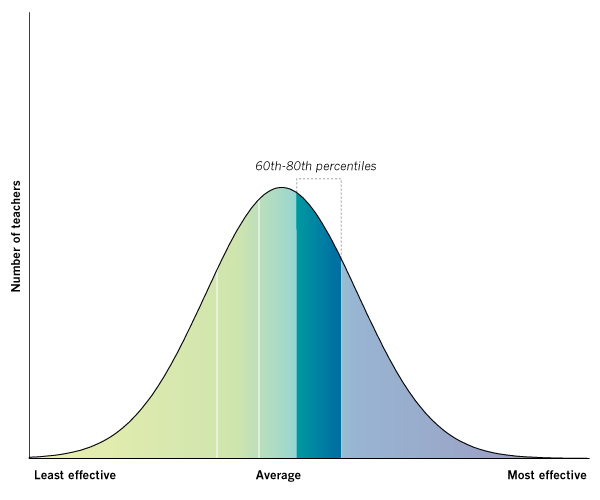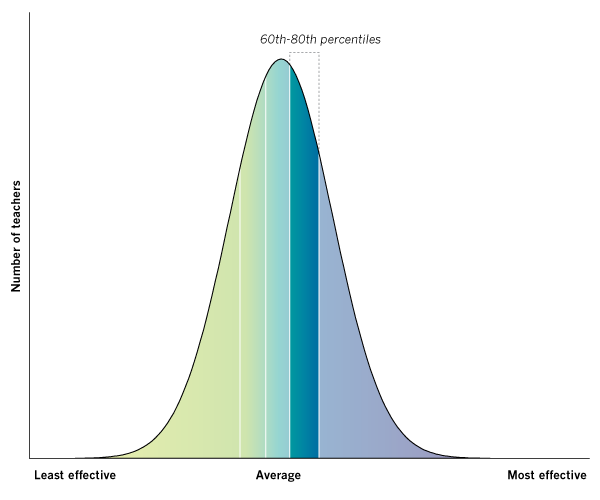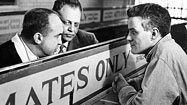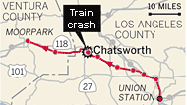Gavino Santiago Bisarra
A 4th grade teacher at Madison Elementary in 2008
These graphs show a teacher's "value-added" rating based on his or her students' progress on the California Standards Tests in math and English. The Times’ analysis used all valid student scores available for this teacher from the 2002-03 through 2008-09 academic years. The value-added scores reflect a teacher's effectiveness at raising standardized test scores and, as such, capture only one aspect of a teacher's work.
Compared with other Los Angeles Unified teachers on the value-added measure of test score improvement, Bisarra ranked:
- More effective than average overall.
- More effective than average in math. Students of teachers in this category, on average, gained about 4 percentile points on the California Standards Test compared with other students at their grade level.
- More effective than average in English. Students of teachers in this category, on average, gained about 2 percentile points on the California Standards Test compared with other students at their grade level.
Bisarra's LAUSD teaching history
2002-03 through 2008-09 academic years
- Madison Elementary, 2008 - 2006
Gavino Bisarra's Response:

I believe that American students must be well educated in order for our society to continue. I believed it so strongly that I became a teacher. Moreover, I believed it so strongly that I became a teacher who obsesses over my daily performance and how my actions affect my students. In other words, I am conscientious. Perhaps my naiveté and grand dreams of working toward a better educated American society combined to make me a bit idealistic, but I never imagined the reality I would encounter as a teacher: unreceptive students ranging from those coming from mildly abusive or neglectful homes to those traumatized by tragedies most of us cannot imagine, parents who are either uncooperative or disinterested, cutbacks, fear of layoffs, loss of support staff, and unfunded state and federal mandates. Even my pay has been erratic due to the payroll software changes. The discrepancy in my pay is so abysmal that I fear I will be unable to have the situation rectified. Conversely, I have also experienced thoroughly engaged students who have come to school eager to learn and parents genuinely invested in their children’s education. These rare occurrences keep me motivated.
I am also a veteran of the first Gulf War and currently an Army Reservist. I mention this because I have been a teacher, employed by the LAUSD since 2001, but I have only spent seven years in the classroom due to military mobilizations. I started as a first grade teacher until my first mobilization in 2003. In 2005, I returned to the classroom when my mobilization ended as a fourth grade teacher. Just as I was gaining momentum, I was mobilized again (May 2009 to May 2010.) So my teaching career has been impacted by my military service, but there is no room for that data in your statistics. The reality of the affect of my military service on my teaching career is that I miss portions of the year and actually missed the administration of the standardized tests of the last school year for which data was collected. Would an asterisk be appropriate next to my name in your database denoting that a substitute teacher completed the year and administered the test? The flaw in your data is that it gives no human allowances in a very human situation.
Admittedly, teaching has its perks, but it is becoming increasingly difficult to offset the hardships with the benefits of teaching. Now, I discover that my name and specific performance will be printed in your paper. I wonder if any other state employees have been subjected to this. I know there was a piece some years ago about the job performance of certain police officers, but were they and their specific performance reported? Did they suffer this indignity? If this story sells papers will others be subjected to this scrutiny? My salary is on public record, and I will ultimately use this experience to better myself as a teacher, but I feel your publication has crossed the line by naming individuals in this manner. I suppose my naiveté has gotten me again for I expected more from the Los Angeles Times than this sensationalized piece constructed obviously to titillate. Ironically, I have used your paper in my classroom by incorporating it into my social studies and writing curriculum. I will rethink this practice.
I fail to see how your data can be practically applied to benefit teachers and ultimately students, but as I said, I will find a way to utilize this experience to better myself as a teacher or as we say in the military, I will "overcome and adapt."
![]() The Times gave LAUSD elementary school teachers rated in this database the opportunity to preview their value-added evaluations and publicly respond. Some issues raised by teachers may be addressed in the FAQ. Teachers who have not commented may do so by contacting The Times.
The Times gave LAUSD elementary school teachers rated in this database the opportunity to preview their value-added evaluations and publicly respond. Some issues raised by teachers may be addressed in the FAQ. Teachers who have not commented may do so by contacting The Times.
|
|
 Delicious
Delicious
|
 Digg
Digg
|
 Facebook
Facebook
|
 Twitter
Twitter
|









